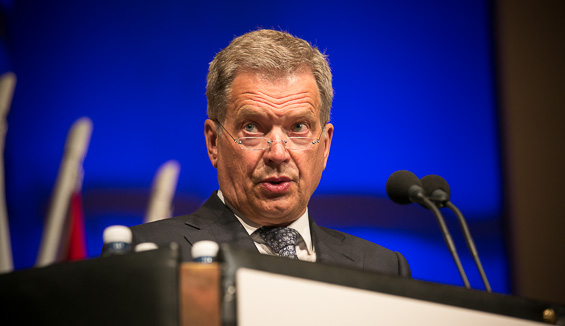
Copyright © Office of the President of the Republic
According to President of the Republic Sauli Niinistö, tension has risen to an unwelcome level between the West and Russia. “Maintaining the lines of communication and dialogue open is very important. Therefore it would be necessary for the EU to clarify the position of the OSCE Parliamentary Assembly in its sanctions legislation”, the President said at the OSCE PA Annual Session in Helsinki on 6 July 2015.
We can’t afford to spend next decade or even more wrapped in a cold battle, President Niinistö said. “Neither Europe nor Russia – not to even mention the people of Ukraine – will gain from this situation and this troubled relation. We need to stop the situation from worsening. The most urgent task is to end violence in Ukraine.”
The President reminded that in the Helsinki Accords, both Moscow and the capitals in the west agreed to refrain from the use of force, respect the sovereignty of countries and inviolability of borders. “These points are as valid as they were 40 years ago. Or they are even more valid now, when these principles have been violated.”
“The Minsk peace plan is the only available roadmap towards the peaceful resolution of the conflict in Eastern Ukraine and Crimea. We should all support the plan, and even more important is that the plan is fully implemented. We need also Russia to carry its responsibility to secure peace and honor those decisions made here, in this very house in 1975.”
The Helsinki principles have stood the test of time, President Niinistö said. It is particularly timely now to stand in support of the key principles. “Now we have to decide whether we have the will and determination to cherish this heritage? I think we don´t even have a choice. There are no real other options.”
President Niinistö thanked the OSCE organization for its active involvement. “In the OSCE field presence, men and women from the participating States, including Finland, are risking their lives in support of what they believe is right – the peaceful solution of the conflict and promoting security through co-operation.”
Pictures
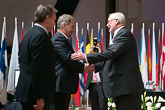 |
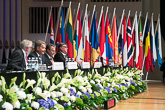 |
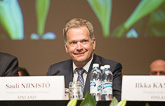 |
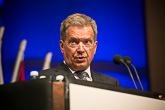 |
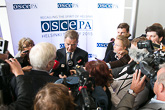 |
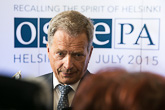 |
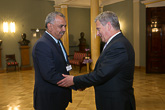 |
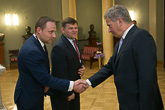 |
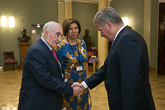 |
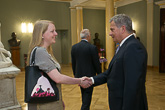 |
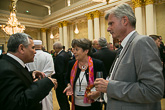 |
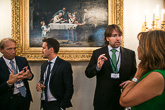 |
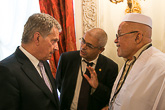 |

